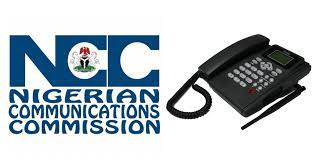The House of Representatives has passed a motion urging the Nigeria Communications Commission (NCC) to ensure that the registered network providers, including MTN, Glo, Airtel, and 9mobile, meet the quality and fairness standards in delivering communication services to Nigerians.
The motion, titled “Need to Direct Telecommunication Companies to Restrain Unwarranted Charges on Services Not Rendered and Improve Service Delivery”, was moved by Hon. Emmanuel Ukpong-Udo, representing Ikono/Ini Federal Constituency of Akwa Ibom State.
According to Techpression sources, the motion was adopted by the House after a debate, in which the lawmakers expressed their concerns and dissatisfaction with the poor quality and high charges of telecom services in the country.
Read also: Nigeria, others secure ITU-WRC23 broadcast, telecom frequencies
A call to eliminate unnecessary charges and improve service quality
The motion highlighted the fact that, as of the end of 2022, there were over 222.5 million Nigerians who had subscribed to telephone services, according to the National Bureau of Statistics.
The motion also noted that, despite the increasing number of Nigerians, especially those in rural areas, low-income groups, and vulnerable segments of society, who depend on telecom services for their social and economic activities, the quality of services provided by the network operators does not match the demand and expectation of Nigerians.
The motion lamented that Nigerians have to pay charges for calls that have poor voice quality due to congestion, call freezing, and unreliable network services. The motion also complained that Nigerians have to pay charges for calls that connect to the wrong parties or have no voice at all.
The motion argued that these issues lead to the loss of valuable business opportunities and financial resources for Nigerians, while benefiting the service providers at their expense.
The motion, therefore, called on the NCC to direct the telecom companies to restrain unwarranted charges on services not rendered and improve service delivery. The motion also called on the NCC to ensure that the telecom companies comply with the quality of service standards and regulations, and sanction any defaulting operator.
A mandate to the Committee on Communications to oversee the implementation
The House of Representatives also mandated its Committee on Communications to ensure the implementation of the resolutions of the motion, and report back to the House within four weeks.
The Committee on Communications is chaired by Hon. Akeem Adeyemi, representing Atiba/Oyo East/Oyo West/Afijio Federal Constituency of Oyo State.
The Committee is expected to liaise with the NCC and the telecom companies, and monitor the progress and impact of the motion on the telecom sector and the subscribers.
The motion is part of the legislative efforts of the House of Representatives to protect the rights and interests of Nigerians, and to promote the development and growth of the telecom industry in the country.
The role of NCC in regulating telecom services
The role of NCC in regulating telecom services is to create an enabling environment for competition, quality, and fairness among the operators and the consumers in the telecom industry in Nigeria. Some of the functions of NCC are:
Licensing and regulating the telecom service providers and their operations, such as setting standards, monitoring compliance, and imposing sanctions.
Managing and allocating the spectrum and frequency resources for telecom services, such as issuing permits, conducting auctions, and enforcing fees.
Promoting and facilitating the development and innovation of the telecom sector, such as supporting research, funding projects, and encouraging collaboration.
Protecting and empowering the rights and interests of the telecom subscribers, such as ensuring quality of service, resolving complaints, and providing information.
The NCC was established in 1992 by the Federal Government of Nigeria, under the NCC Act of 2003 as the independent national regulatory authority for the telecom industry in Nigeria. The NCC is headed by a board of commissioners and has its headquarters in Abuja and zonal offices in Lagos, Enugu, Kano, Ibadan, and Port Harcourt.




